- Home
- Fergus Hume
The Mystery of a Hansom Cab Page 25
The Mystery of a Hansom Cab Read online
Page 25
‘The net is closing round him,’ he murmured to himself. ‘I don’t see how he can escape. Oh! Madge! Madge! if I could only spare you the bitterness of knowing what you must know, sooner or later, and that other unhappy girl—the sins of the father will be visited on the children—God help them.’
He had his bath, and, after dressing himself, went into his sitting-room, where he had a cup of tea, which refreshed him considerably. Mrs Sampson came crackling merrily upstairs, with a letter, and gave vent to an exclamation of surprise, on seeing his altered appearance.
‘Lor, sir!’ she exclaimed. ‘What ’ave you bin a-doin’—me knowin’ your ’abits know’d as you’d gone to bed, not to say as it’s very temptin’ in this ’ot weather, but with excuses, sir, you looks as you ’adn’t slept a blessed wink.’
‘No more I have,’ said Brian, listlessly holding out his hand for the letter. ‘I was walking up and down my room all last night—I must have walked miles.’
‘Ah! ’ow that puts me in mind of my pore ’usband,’ chirped the cricket, ‘Bein’ a printer, and accustomed like a howl to the darkness, when ’e was ’ome for the night ’e walked up and down till ’e wore out the carpet, bein’ an expensive one, as I ’ad on my marriage, an’ the only way I could stop ’im was by givin’ ’im something soothin’, which you, sir, ought to try—whisky ’ot, with lemon and sugar—but I’ve ’eard tell as chloroform—’
‘No, damn it,’ said Brian, hastily, startled out of his politeness, ‘I’ve had enough of that.’
‘Achin’ teeth, no doubt,’ said the landlady, going to the door, ‘which I’m often taken that way myself, decayed teeth runnin’ in the family, tho’, to be sure, mine are stronger than former, a lodger of mine ’avin’ bin’ a dentist, an’ doin’ them beautiful, instead of payin’ rent, not ’avin’ ready cash, his boxes bein’ filled with bricks on ’is departure from the ’ouse.’
As Brian did not appear particularly interested in these domestic reminiscences, and seemed as if he wanted to be left alone, Mrs Sampson, with a final crackle, went downstairs and talked with a neighbour in the kitchen, as to the desirability of drawing her money out of the savings bank, in case the Russians should surprise and capture Melbourne.
Brian, left alone, stared out of the window at the dusty road and the black shadows cast by the tall poplars in front of the house.
‘I must leave this place,’ he said to himself; ‘every chance remark seems to bear on the murder, and I’m not going to have it constantly by my side like the skeleton at the feast.’
He suddenly recollected the letter which he held in his hand, and which he now looked at for the first time. It proved to be from Madge, and tearing it hastily open, he read it.
‘I cannot understand what is the matter with papa,’ she wrote. ‘Ever since that man Moreland left last night, he has shut himself up in his study, and is writing there hour after hour. I went up this morning, but he would not let me in. He did not come down to breakfast, and I am getting seriously alarmed. Come down tomorrow and see me, for I am anxious about his state of health, and I am sure that Moreland told him something which has upset him.’
‘Writing,’ said Brian, as he put the letter in his pocket, ‘what about, I wonder? Perhaps he is thinking of committing suicide; if so, I for one will not stop him. It is a horrible thing to do, but it would be acting for the best under the circumstances.’
In spite of his determination to see Calton and tell all, Fitzgerald did not go near him that day. He felt ill and weary, the want of sleep and mental worry telling on him fearfully, and he looked ten years older than he did before the murder of Whyte. It is trouble which draws lines on the smooth forehead and furrows round the mouth. If a man has any mental worry, his life becomes a positive agony to him. Mental tortures are quite as bad as physical ones, if not worse. The last thing before dropping off to sleep is the thought of trouble, and with the first faint light of dawn, it returns and hammers all day at the weary brain. But while a man can sleep, life is rendered at least endurable; and of all the blessings which Providence has bestowed, there is none so precious as that same sleep, which, as wise Sancho Panza says, ‘Wraps every man like a cloak.’ Brian felt the need of rest, so, sending a telegram to Calton to call on him in the morning, and another to Madge, that he would be down to luncheon next day, he stayed inside all day, and amused himself with smoking and reading. He went to bed early, and succeeded in having a sound sleep, so when he awoke next morning, he felt considerably refreshed and reinvigorated.
He was having his breakfast at half past eight, when he heard the sound of wheels, and immediately afterwards a ring at the bell. He went to the window, and saw Calton’s trap was at the door, while the owner was shortly afterwards shown into the room.
‘Well, you are a nice fellow,’ cried Calton, after greetings were over. ‘Here I’ve been waiting for you with all the patience of Job, thinking you were still up country.’
‘Will you have some breakfast?’ asked Brian, laughing at his indignation.
‘What have you got?’ said Calton, looking over the table. ‘Ham and eggs. Humph! Your landlady’s culinary ideas are very limited.’
‘Most landlady’s ideas are,’ retorted Fitzgerald, resuming his breakfast. ‘Unless Heaven invents some new animal, lodgers will go on getting beef and mutton, alternated with hash, until the end of the world.’
‘When one is in Rome, one mustn’t speak ill of the Pope,’ answered Calton, with a grimace. ‘Do you think your landlady could supply me with brandy and soda?’
‘I think so,’ answered Fitzgerald, rising, and ringing the bell; ‘but isn’t it rather early for that sort of thing?’
‘There’s a proverb about glass houses,’ said Calton, severely, ‘which applies to you in this particular instance.’ Whereupon Fitzgerald laughed, and Calton having been supplied with what he required prepared to talk business.
‘I need hardly tell you how anxious I am to hear what you’ve got to say,’ he said, leaning back in his chair, ‘but I may as well tell you that I am satisifed that I know half your secret already.’
‘Indeed!’ Fitzgerald looked astonished, ‘in that case, I need not—’
‘Yes you need,’ retorted Calton. ‘I told you I only know half.’
‘Which half?’
‘Hum—rather difficult to answer—however I’ll tell you what I know, and you can supply all deficiencies. I am quite ready—go on—stop’—he arose and closed the door carefully. ‘Well,’ resuming his seat, ‘Mother Guttersnipe died the other night.’
‘Is she dead?’
‘As a doornail,’ answered Calton, calmly. ‘And a horrible death bed it was—her screams ring in my ears yet, but before she died she sent for me, and said—’
‘What?’
‘That she was the mother of Rosanna Moore.’
‘Yes!’
‘And that Sal Rawlins was Rosanna’s child.’
‘And the father?’ said Brian, in a low voice.
‘Was Mark Frettlby.’
‘Ah!’
‘And now what have you to tell me?’
‘Nothing!’
‘Nothing,’ echoed Calton, surprised, ‘then this is what Rosanna Moore told you when she died?’
‘Yes!’
‘Then why have you made such a mystery about it?’
‘You ask that?’ said Fitzgerald, looking up, in surprise. ‘If I had told it don’t you see what difference it would have made to Madge?’
‘I’m sure I don’t,’ retorted the barrister, completely mystified. ‘I suppose you mean Frettlby’s connection with Rosanna Moore; well, of course, it was not a very creditable thing for her to have been Frettlby’s mistress, but still—’
‘His mistress?’ said Fitzgerald, looking up, sharply. ‘Then you don’t know all.’
‘What do you mean—was she not his mistress?’
‘No—his wife!’
Calton sprang to his feet, and gave a cry of surprise.
‘His wife?’
Fitzgerald nodded.
‘Why, Mother Guttersnipe did not know this—she thought Rosanna was his mistress.’
‘He kept his marriage secret,’ answered Brian, ‘and as his wife ran away with someone else shortly afterwards, he never revealed it.’
‘I understand now,’ said the barrister slowly. ‘For if Mark Frettlby was lawfully married to Rosanna Moore—Madge is illegitimate.’
‘Yes, and she now occupies the place which Sal Rawlins—or rather Sal Frettlby—ought to.’
‘Poor girl,’ said Calton, a little sadly. ‘But all this does not explain the mystery of Whyte’s murder.’
‘I will tell you that,’ said Fitzgerald, quickly. ‘When Rosanna left her husband, she ran away to England with some young fellow, and when he got tired of her she returned to the stage, and became famous as a burlesque actress, under the name of Musette. There she met Whyte as your friend found out, and they came out here for the purpose of extorting money from Frettlby. When they arrived in Melbourne, Rosanna let Whyte do all the business, and kept herself quiet. She gave her marriage certificate to Whyte, and he had it on him the night he was murdered.’
‘Then Gorby was right,’ interposed Calton, eagerly. ‘The man to whom those. papers were valuable, did murder Whyte.’
‘Can you doubt it? And that man was—’
‘Not Mark Frettlby?’ burst out Calton. ‘In God’s name, not Mark Frettlby!’
Brian, nodding, ‘Yes, Mark Frettlby!’
There was a silence for a few moments, Calton being too much startled by the revelation to say anything.
‘When did you discover this?’ he asked, after a pause.
‘At the time you first came to see me in prison,’ said Brian. ‘I had no suspicion till then, but when you said Whyte was murdered for the sake of certain papers—knowing what they were, and to whom they were valuable, I immediately guessed that Mark Frettlby had killed Whyte in order to obtain them, and keep his secret.’
‘There can be no doubt of it,’ said the barrister, with a sigh. ‘So this is the reason Frettlby wanted Madge to marry Whyte—her hand was to be the price of his silence. When he withdrew his consent, Whyte threatened him with exposure. I remember he left the house in a very excited state on the night he was murdered. Frettlby must have followed him up to town, got into the cab with him, and after killing him with chloroform, took the marriage certificate from his secret pocket, and escaped.’
Brian rose to his feet, and walked rapidly up and down the room.
‘Now you can understand what a hell my life has been for the last few months,’ he said, ‘knowing that he had committed the crime; and yet I had to sit with him, eat with him, and drink with him, with the knowledge that he was a murderer, and Madge—Good God—Madge, his daughter!’
Just then a knock came to the door, and Mrs Sampson entered with a telegram, which she handed to Brian. He tore it open as she withdrew, and glancing over it, gave a cry of horror, and let it flutter to his feet.
Calton turned rapidly on hearing his cry, and seeing him fall into a chair with a ghastly white face, snatched up the telegram, and read it. When he did so, his face grew as pale and startled as Fitzgerald’s, and lifting his hand, he said solemnly,
‘It is the judgment of God!’
CHAPTER THIRTY
NEMESIS
Men, according to the old Greeks, ‘were the sport of the gods’ who, enthroned on high Olympus, put evil desires into the hearts of mortals; and when evil actions were the outcome of evil thoughts, amused themselves by watching the ineffectual efforts made by their victims to escape a relentless deity called Nemesis, who exacted a penalty for their evil deeds. It was no doubt very amusing—to the gods, but it is questionable if the men found it so. They had their revenge, however, for weary of plaguing puny mortals, who whimpered and cried when they saw they could not escape, the inevitable Nemesis turned her attention from actors to spectators, and made a clean sweep of the whole Olympian hierarchy. She smashed their altars, pulled down their statues, and after she had completed her malicious work, found that she had, vulgarly speaking, been cutting off her nose to spite her face, for she, too, became an object of derision and disbelief, and was forced to retire to the same obscurity to which she had relegated the other deities.
Men, however, found out that she had not been altogether useless as a scapegoat upon which to lay the blame of their own shortcomings, so they created a new deity called Fate, and laid any misfortune which happened to them to her charge. Her worship is still very popular, especially among lazy and unlucky people, who never bestir themselves on the ground that whether they do so or not their lives are already settled by Fate. After all, the true religion of Fate has been preached by George Eliot, when she says that our lives are the outcome of our actions. Set up any idol you please upon which to lay the blame of unhappy lives and baffled ambitions, but the true cause is to be found in men themselves.
Every action, good or bad, which we do has its corresponding reward, and Mark Frettlby found it so, for the sins of his youth were now being punished in his old age. No doubt he had sinned gaily enough in that far-off time when life’s cup was still brimming with wine, and no asp hid among the roses; but Nemesis had been an unseen spectator of all his thoughtless actions, and now came to demand her just dues. He felt somewhat as Faust must have felt when Mephistopheles suggested a visit to Hades, in repayment of those years of magic youth and magic power. So long ago it seemed since he had married Rosanna Moore, that he almost persuaded himself that it had been only a dream—a pleasant dream, with a disagreeable awakening. When she had left him, he had tried to forget her, recognising how unworthy she was of a good man’s love. He heard that she had died in a London hospital, and with a passing sigh for a perished love, had dismissed her from his thoughts forever. His second marriage had turned out a happy one, and he regretted the death of his wife deeply. Afterwards, all his love centred in his daughter, and he thought he would be able to spend his declining years in peace.
This, however, was not to be, and he was thunderstruck when Whyte arrived from England with the information that his first wife still lived, and that he had it in his power to proclaim to the world that the daughter of Mark Frettlby was illegitimate. Sooner than this, Frettlby agreed to anything; but Whyte’s demands became too exorbitant, and he refused to comply with them. On Whyte’s death he again breathed freely, when suddenly a second possessor of his fatal secret started up in the person of Roger Moreland. As the murder of Duncan had to be followed by that of Banquo, in order to render Macbeth safe, so he foresaw that while Roger Moreland lived his life would be one long misery. He knew that the friend of the murdered man would be his master, and would never leave him during his life, while after his death he would probably publish the whole ghastly story, and defame the memory of the widely respected Mark Frettlby. What is it that Shakespeare says?—
Good name in man or woman
Is the immediate jewel of their souls.
And after all these years of spotless living and generous use of his wealth, was he to be dragged down to the depths of infamy and degradation by a man like Moreland? Already, in fancy, he heard the jeering cries of his fellow men, and saw the finger of scorn point at him—he, the great Mark Frettlby, who was famous throughout Australia for his honesty, integrity, and generosity. No, it could not be, and yet, this would surely happen unless he took means to prevent it.
The day after he had seen Moreland, and knew that his secret was no longer safe, since it was in the power of a man who might reveal it at any moment in a drunken fit, or out of sheer maliciousness—he sat at his desk writing. After a time, he laid down his pen, and taking up a portrait of his dead wife which stood just in front of him, he stared at it long and earnestly. As he did so, his mind went back to the time when he had first met and loved her. Even as Faust had entered into the purity and serenity of Gretchen’s chamber, out of the coarseness and profligacy of
Auerbach’s cellar, so he, leaving behind him the wild life of his youth, had entered into the peace and quiet of a domestic home. The old feverish life with Rosanna Moore seemed to be as unsubstantial and chimerical as, no doubt, his union with Lilith after he met Eve seemed to Adam in the old Rabbinical legend. There seemed to be only one way open to him, by which he could escape the relentless fate which dogged his steps. He would write a confession of everything from the time he had first met Rosanna, and then—death. He would cut the Gordian knot of all his difficulties, and then his secret would be safe—safe—no, it could not be while Moreland lived. When he was dead Moreland would see Madge, and embitter her life with the story of her father’s sins—yes—he must live to protect her, and drag his weary chain of bitter remembrance through life, always with that terrible sword of Damocles hanging over him.
But still, he would write out his confession, and after his death, whenever it may happen, it might help, if not altogether, to exculpate at least, to secure some pity for a man who had been hardly dealt with by fate. His resolution taken, he put it into force at once, and sat all day at his desk filling page after page with the history of his past life which was so bitter to him. He started at first languidly, and as in the performance of an unpleasant but necessary duty. Soon, however, he became interested in it, and took a peculiar pleasure in putting down every minute circumstance which made the case stronger against himself. He dealt with it, not as a criminal, but as a prosecutor, and painted his conduct as much blacker than it really had been.

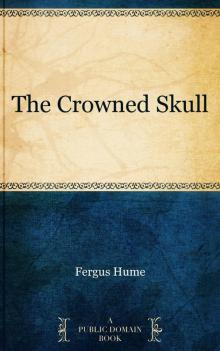 The Crowned Skull
The Crowned Skull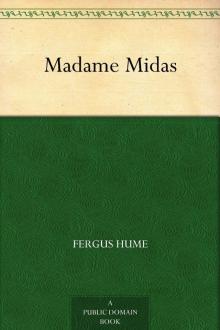 Madame Midas
Madame Midas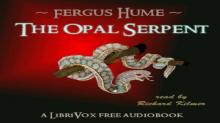 The Opal Serpent
The Opal Serpent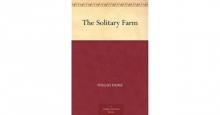 The Solitary Farm
The Solitary Farm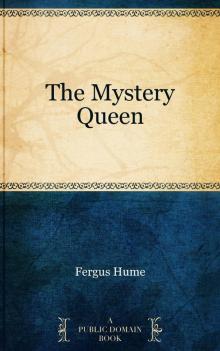 The Mystery Queen
The Mystery Queen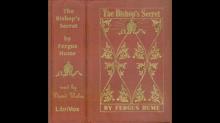 The Bishop's Secret
The Bishop's Secret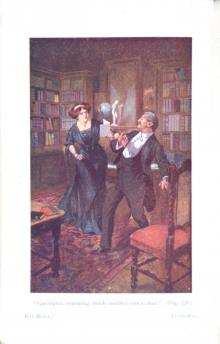 Red Money
Red Money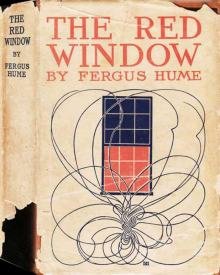 The Red Window
The Red Window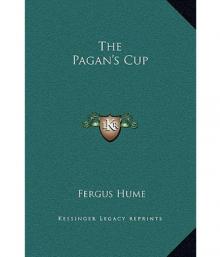 The Pagan's Cup
The Pagan's Cup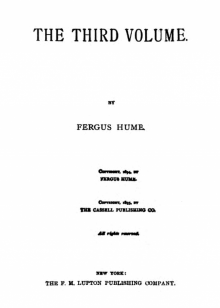 The Third Volume
The Third Volume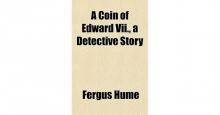 A Coin of Edward VII: A Detective Story
A Coin of Edward VII: A Detective Story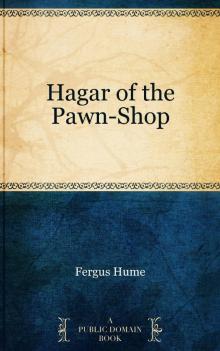 Hagar of the Pawn-Shop
Hagar of the Pawn-Shop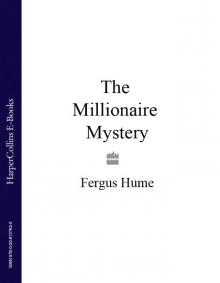 The Millionaire Mystery
The Millionaire Mystery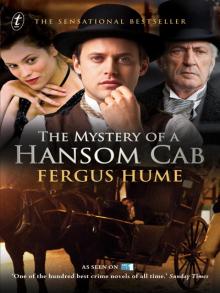 The Mystery of a Hansom Cab
The Mystery of a Hansom Cab